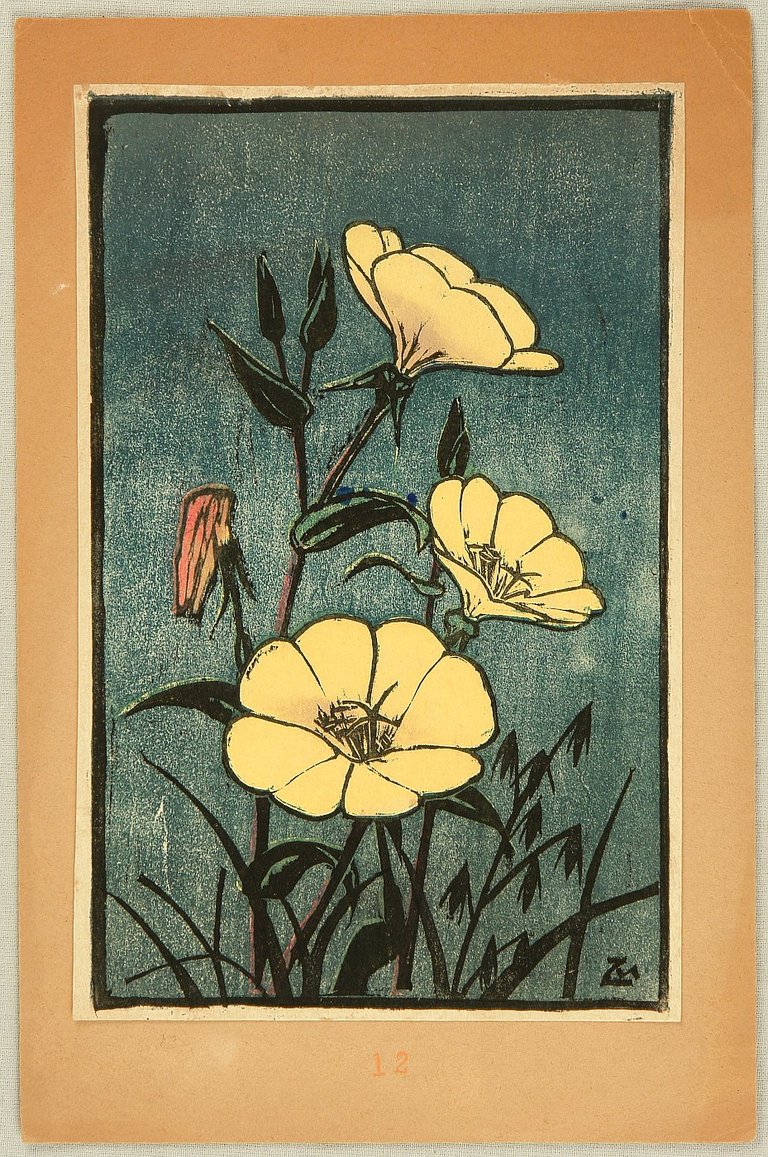Moonflowers ~ Haiku of Japan
Shakespeare famously asked, “Shall I compare thee to a summer’s day?”, drawing a parallel between the beauty of a woman and the image of a typical summer. But what if we compare a woman to moonflowers?
yūgao ya onago no hada no miyuru toki
a woman's skin, like the blossoms
is revealed
—Chiyo-ni


Moonflowers bloom at night in the autumn. They suggest an ephemeral beauty as we transition from the heat of summer to the cooler weather of autumn.
There is some speculation that Chiyo-ni is referencing a very famous scene in The Tale of Genji (Genji Monogatari) where Prince Genji observes the silhouette of a woman through her blinds at night, framed by moonflowers at the gate of her residence. The moonflowers in the story suggest a secret love affair.
Others, however, suggest that this is reading too much into things, proposing instead that Chiyo-ni was making a more general observation: women typically do not undress until late at night, when everyone else is asleep, except for the moonflowers. Especially at the time, women were very busy with keeping the house and didn't have time to undress and bathe until late at night. In many traditional houses, it is still this way.
Ultimately, the beauty of haiku lies in its openness to interpretation. Both readings of this poem provide rich imagery and emotional depth, allowing the reader to engage with the text based on their own perspectives, truly marking this as a masterful haiku.
❦
 |
David is an American teacher and translator lost in Japan, trying to capture the beauty of this country one photo at a time and searching for the perfect haiku. He blogs here and at laspina.org. Write him on Mastodon. |
That is, me! If you like this translation, feel free to use it. Just credit me. Also link here if you can. ↩
!pimp
That is a pretty cool one. It's been interesting to learn just how deep some of these short lines can be.
interesting contribution, this confirms that to interpret a poem, you have to know more about the context, the time in which it was written and above all the emotional state of the author
Beautiful piece of art!
Very cool! There is always room for interpretation with poetry, but I didn't know about the traditional custom of woman staying up late bathe and undress once everyone else is asleep. Interesting!
!BBH
@dbooster! @thebighigg likes your content! so I just sent 1 BBH to your account on behalf of @thebighigg. (4/50)
(html comment removed: )
)
I love your work. It is quite interesting and captivating BUT, the message would have better been conveyed using both pictures and write-up.
As I told you on the other post, this is haiku. Poetry in general relies on words, not pictures. Pictures, in fact, often ruin the poetry as they give you a set image instead of a fluid one. In haiku especially, the image should come from the reader, not the author. I do usually pick out a woodblock print to illustrate something that the haiku may suggest, but I don't want to be more specific than that.